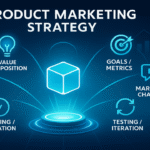Now Reading: Beyond Skills: Proactive Attitude – True Professionalism
-
01
Beyond Skills: Proactive Attitude – True Professionalism

Beyond Skills: Proactive Attitude – True Professionalism
I. Introduction: The Professionalism Paradox
In today’s fast-paced, hyper-competitive world, professionalism is often perceived as the baseline – a ticket to entry, not a differentiator. We assume professionals are skilled, competent, and knowledgeable. But what truly sets exceptional professionals apart? It’s not just what they can do, but how they approach their work and challenges. It’s their proactive attitude.
Think about two individuals with identical skill sets. One waits for instructions, reacts to problems, and meets expectations. The other anticipates needs, seeks solutions proactively, and exceeds expectations. Both are skilled, but only one embodies true professionalism. The difference? A proactive attitude.
While skills are crucial, they are increasingly commoditized. In a world of rapid technological advancement and readily available information, technical skills can be learned and updated relatively quickly. However, a proactive attitude – characterized by initiative, resilience, and a forward-thinking mindset – is a deeply ingrained trait that is far more valuable and harder to replicate.
This article argues that true professionalism extends beyond mere competence. It’s defined by a proactive attitude that drives individuals to not only perform their duties effectively but also to continuously seek improvement, take ownership, and contribute meaningfully to their organizations and careers. Let’s explore how this proactive stance redefines what it means to be a true professional.
II. Beyond Technical Skills: The Primacy of Attitude
For decades, the focus in professional development has been heavily skewed towards hard skills. Resumes highlight qualifications, certifications, and technical expertise. Job descriptions list required skills and experience. While undeniably important, this emphasis on skills alone misses a critical component of professional success: attitude.
Hard skills are the quantifiable abilities – coding, accounting, marketing analytics. They are teachable, measurable, and often industry-specific. However, in an era of automation and AI, many routine tasks are being taken over by technology. What remains uniquely human and indispensable are soft skills – and at the heart of these lies attitude. As leadership expert John Maxwell notes, “Your attitude, not your aptitude, will determine your altitude.” [1]
Soft skills, encompassing communication, teamwork, problem-solving, and leadership, are increasingly recognized as essential. Yet, even soft skills are often viewed as trainable competencies. Attitude, however, is more fundamental. It’s the underlying disposition that shapes how soft skills are applied and how hard skills are utilized.
A proactive attitude is the engine that drives professional excellence. It’s the inner drive to:
- Take Initiative: Not waiting to be told, but seeking opportunities and acting autonomously.
- Embrace Challenges: Seeing obstacles as chances to learn and grow, not roadblocks.
- Seek Solutions: Focusing on finding answers and improvements, not just identifying problems.
- Take Ownership: Feeling personally responsible for outcomes and committed to quality.
- Maintain a Positive Outlook: Approaching work with optimism and resilience, even under pressure.
These attitudinal traits are not merely “nice-to-haves”; they are the bedrock of true professionalism. They determine how effectively skills are deployed, how teams collaborate, and how organizations innovate and thrive. In essence, skills enable you to do the job, but attitude defines how well you do it and the impact you create. [2]
III. Components of a Proactive Professional Attitude
A proactive attitude isn’t a vague concept; it’s built upon specific, observable behaviors and mindsets. Let’s break down the key components that define this essential aspect of true professionalism:
- Initiative: Proactive professionals don’t wait for instructions; they see opportunities and act. They identify needs, propose solutions, and volunteer for challenges. Initiative demonstrates a drive to contribute beyond the defined job description.
- Ownership: Taking ownership means feeling personally responsible for outcomes, both successes and failures. Proactive professionals don’t pass the buck; they take accountability and strive for excellence in everything they do. This sense of ownership fosters reliability and trust.
- Resilience: Setbacks are inevitable in any career. Resilient professionals bounce back from adversity, learn from mistakes, and maintain momentum. A proactive attitude embraces challenges as learning opportunities, not reasons to give up.
- Positive Outlook: A positive attitude isn’t about being Pollyannaish; it’s about approaching work with optimism and a belief in the possibility of success. This positivity is contagious, boosting team morale and fostering a productive environment.
- Growth Mindset: Proactive professionals believe in continuous learning and development. They seek feedback, embrace new challenges, and view failures as stepping stones to growth. This mindset fuels adaptability and long-term career progression.
- Adaptability: The modern workplace is constantly evolving. Proactive professionals are flexible and adaptable, readily adjusting to change, embracing new technologies, and navigating ambiguity. This adaptability is crucial for staying relevant and effective.
- Continuous Learning: True professionals are lifelong learners. They proactively seek knowledge, stay updated on industry trends, and continuously enhance their skills and understanding. This commitment to growth demonstrates intellectual curiosity and a drive for mastery.
- Collaborative Spirit: Proactive attitude extends to teamwork. Collaborative professionals actively contribute to team goals, share knowledge, support colleagues, and foster a positive team dynamic. They understand that collective success is paramount.
These components, when combined, form a powerful proactive professional attitude. It’s a mindset that empowers individuals to not just react to their work environment but to actively shape it, contributing to their own success and the success of their organizations. [3]
IV. Proactive Attitude in Action: Real-World Examples
The components of a proactive attitude are not just theoretical concepts; they manifest in tangible actions and behaviors that define true professionals. Let’s look at some real-world examples of how a proactive attitude plays out in different professional scenarios:
- Problem Solving: Instead of simply reporting a problem, a proactive professional will research potential solutions, propose recommendations, and even volunteer to implement them. They don’t just highlight issues; they drive towards resolutions.
- Teamwork: In a team setting, a proactive individual doesn’t just complete their assigned tasks. They anticipate team needs, offer help to colleagues, share insights, and proactively communicate to ensure smooth collaboration and project success.
- Leadership: Proactive leaders don’t just manage; they inspire and empower. They anticipate future challenges, develop strategic initiatives, mentor team members, and proactively foster a culture of growth and innovation. Their leadership is characterized by forward-thinking action, not just reactive management.
- Client Interactions: A proactive professional in client service doesn’t just fulfill client requests. They anticipate client needs, offer value-added solutions, proactively communicate updates, and build strong, lasting relationships through consistent initiative and attentiveness.
- Personal Development: Proactive professionals don’t wait for training opportunities to be offered; they seek them out. They identify skill gaps, pursue relevant courses, seek mentorship, and proactively invest in their own growth and career advancement.
In each of these scenarios, the proactive attitude transforms ordinary competence into exceptional performance. It’s the driving force behind individuals who not only meet expectations but consistently exceed them, making a significant and lasting impact. [4]
V. Cultivating a Proactive Attitude: Practical Strategies
While some individuals may naturally lean towards proactivity, a proactive attitude is not solely innate. It can be cultivated and strengthened through conscious effort and practice. Here are practical strategies to develop and enhance a proactive professional attitude:
- Self-Reflection and Awareness: Start by understanding your current attitude. Reflect on your typical responses to challenges, your level of initiative, and your general outlook at work. Identify areas where you tend to be more reactive than proactive.
- Seek Feedback: Ask trusted colleagues or mentors for honest feedback on your level of proactivity. How do they perceive your initiative, ownership, and problem-solving approach? External perspectives can provide valuable insights.
- Focus on Solutions, Not Just Problems: Train yourself to immediately think about solutions when faced with a challenge. Instead of dwelling on the problem, shift your focus to brainstorming potential answers and actionable steps.
- Embrace Challenges and Step Outside Comfort Zones: Actively seek opportunities to take on new challenges and projects that stretch your abilities. Stepping outside your comfort zone builds resilience and fosters a growth mindset.
- Practice Initiative in Small Ways: Start by taking initiative in small, manageable tasks. Volunteer for extra responsibilities, propose process improvements, or take the lead on a minor project. Build momentum and confidence through small wins.
- Develop a Growth Mindset: Embrace the belief that your abilities and intelligence can be developed through dedication and hard work. View failures as learning opportunities, not as limitations.
- Cultivate Positive Self-Talk: Pay attention to your inner dialogue. Replace negative or passive thoughts with positive and proactive affirmations. Believe in your ability to make a difference and contribute meaningfully.
- Learn from Proactive Role Models: Identify individuals in your workplace or network who exemplify a proactive attitude. Observe their behaviors, learn from their approaches, and seek their advice.
- Practice Gratitude and Optimism: Cultivating a general sense of gratitude and optimism can positively influence your professional attitude. Focus on the positive aspects of your work and career, even amidst challenges.
- Continuous Learning and Skill Development: Proactively invest in your professional development. Acquire new skills, expand your knowledge base, and stay updated on industry trends. This demonstrates a commitment to growth and enhances your ability to take initiative. [5]
By consciously implementing these strategies, individuals can cultivate a proactive attitude, transforming themselves from competent professionals into truly exceptional ones.
VI. Conclusion: Attitude as the Cornerstone of Professional Excellence
In a world where skills can be acquired and replicated, attitude emerges as the ultimate differentiator in the realm of professionalism. While competence remains essential, it is a proactive attitude that elevates individuals from simply performing their jobs to truly excelling in their careers and making a lasting impact.
True professionalism is not just about possessing the right skills; it’s about embodying the right mindset – a mindset characterized by initiative, ownership, resilience, and a relentless drive to contribute and improve. It’s about approaching every task, challenge, and opportunity with a proactive spirit.
Organizations that recognize and cultivate proactive attitudes within their workforce gain a significant competitive advantage. Proactive professionals are the driving force behind innovation, efficiency, and positive organizational culture. They are the leaders, problem-solvers, and collaborators who propel businesses forward.
For individuals, embracing a proactive attitude is the most powerful investment they can make in their careers. It’s the key to unlocking their full potential, achieving sustained success, and finding genuine fulfillment in their professional lives. In the pursuit of excellence, remember: skills open doors, but attitude paves the path to true and lasting professionalism.
References
- Forbes:https://www.forbes.com/sites/forbescoachescouncil/2022/07/26/conflict-management-is-a-superpower-heres-how-to-wield-it-effectively/?sh=6499481a7a44 (General concept of attitude in professional success)
- Harvard Business Review:https://hbr.org/2023/01/are-your-employees-proactive-or-reactive (Concept of proactive vs. reactive employees)
- MindTools:https://www.mindtools.com/a47r0bo/active-listening (Implicitly supports proactive communication as part of professionalism)
- The Muse:https://www.themuse.com/advice/5-signs-youre-a-pro-at-work-even-if-you-dont-feel-like-it (Characteristics of a professional, including taking initiative)
- Indeed Career Advice:https://www.indeed.com/career-advice/career-development/how-to-improve-professionalism (Tips on improving professionalism, including proactivity)
















skapa binance-konto
Your article helped me a lot, is there any more related content? Thanks!